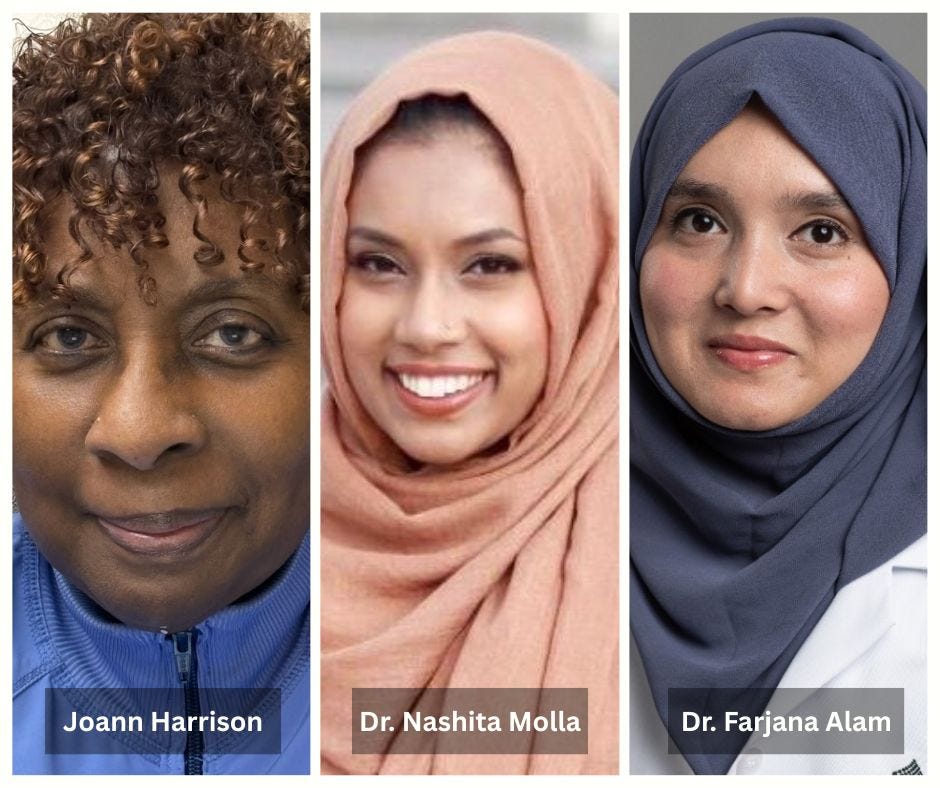Michigan is home to the third largest population of Bangladeshis in the U.S., with a significant number living in the Metro Detroit area.
Bangladeshi immigrants struggle with several challenges when trying to access health care. Among them are language, cultural competency, and adequate insurance.
As part of a new four-part series called “Shustho: Mind, Body, and Spirit,” WDET’s Nargis Rahman reports on how Bangladeshi women in Southeast Michigan are overcoming cultural barriers.
Check out the series at: wdet.org/shustho.
In our third iteration, learn how healthcare affordability impacts Bangladeshi women.
Shustho: Free health clinic aims to close insurance gap for Bangladeshi women in southeast Michigan
The Health Unit on Davison Avenue in Detroit (HUDA Clinic) is the largest free health care clinic in Wayne County. It serves uninsured and underinsured patients helping about 5,000 patients annually.
Nurse Practitioner Joann Harrison says about 30% of HUDA’s patients are Bangladeshi women. She says many struggle with mental health and chronic conditions due to lack of access to regular care. Within that care, Harrison says Bangladeshi women are more receptive to female healthcare providers.
“I think they’re more open to talk with us. Unfortunately, that’s not always the case that we have female providers available or female translators available, but I do feel that when there is someone present, there is more openness, more freedom to speak with us,” she explained.
Dr. Nashita Molla is a Bangladeshi American physician who volunteers at the HUDA Clinic. Part of her care is educating Bangladeshi women about preventive care. Molla said having more Bangladeshi doctors and health care providers who are women could improve care for Bangladeshi women patients.
“If I’m not there, or, you know, another female Bengali provider is not there, or then they’re not going to be as open with those other providers. They might not do those tests because they don’t understand why they need those things,” she shared.
Dr. Farjana Alam is an emergency medicine physician who works at several hospitals in metro Detroit. She says socioeconomic barriers contribute to these challenges.
“You can’t compare someone like a white female from a family who has all the resources in the world, who has all the money in the world, her health outcomes, to this Bangladeshi female who barely finished school, who has all these financial constraints over her; like you can’t compare those health outcomes,” she said.





